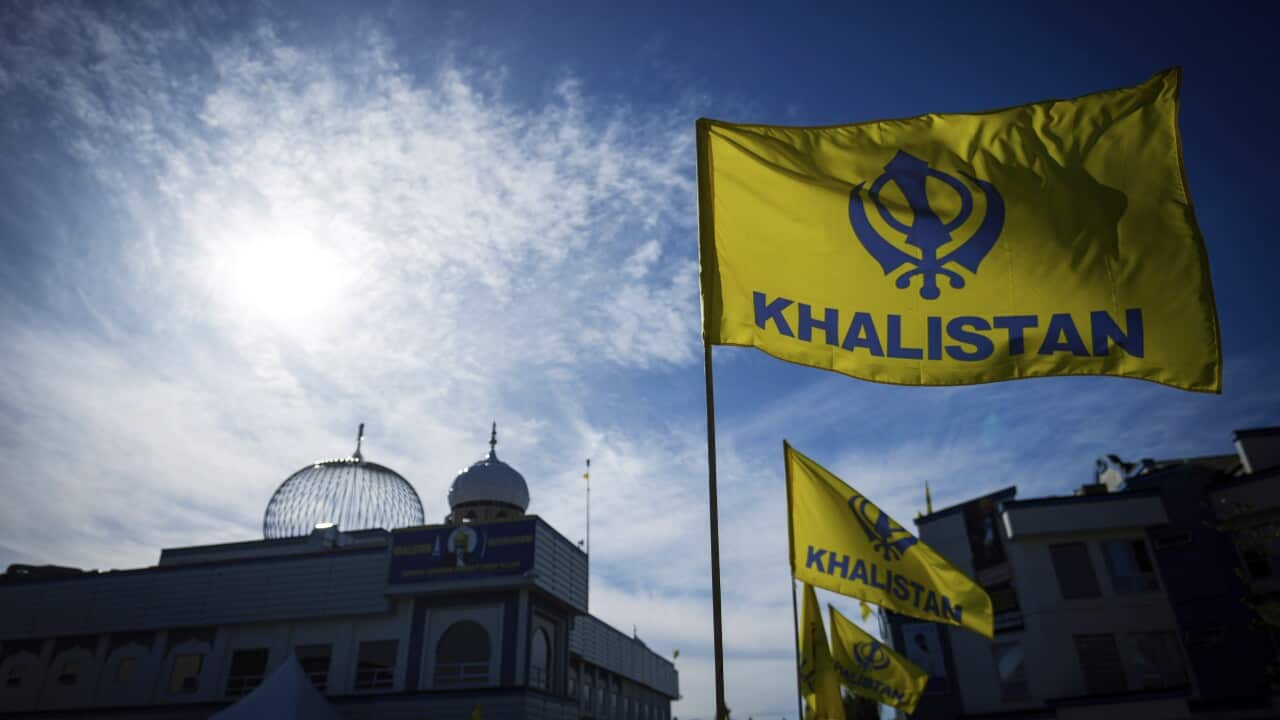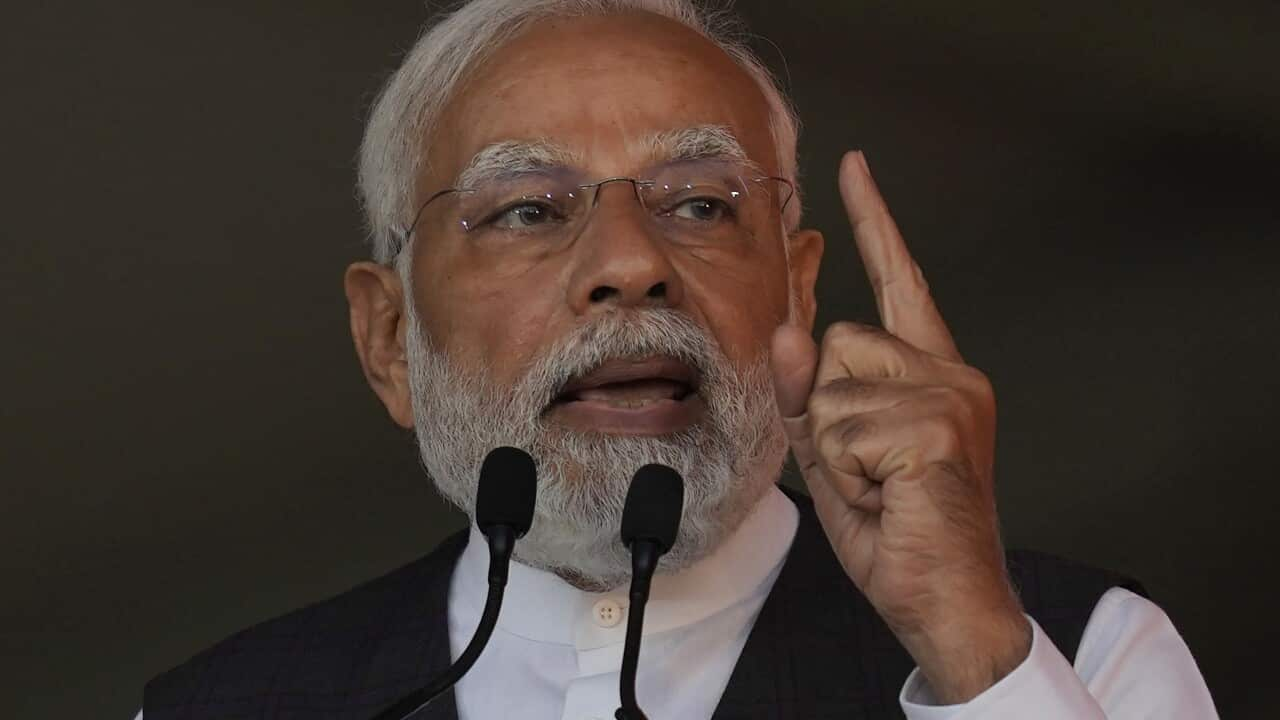When Justin Trudeau this week accused India of being involved in the assassination of a Canadian citizen, it sparked a diplomatic crisis.
The Canadian prime minister said there was "credible evidence" that Indian authorities were linked to the June shooting of Hardeep Singh Nijjar, a prominent supporter of the Khalistan movement.
India was quick to respond, with its foreign ministry , and demanding the Canadian government take "prompt and effective legal action against all anti-India elements operating on their soil".
What is the Khalistan movement?
The history of the Khalistan movement's history is "very complex", Stuti Bhatnagar, a research fellow in Asian security at ANU's Strategic and Defence Studies Centre, said.
"In its most basic form, it is a demand for a distinct homeland for the Sikhs … in the Indian state of Punjab," she told SBS News.
The movement started as a reaction to the "economic, social, and political circumstances that the Sikh population was finding itself in post-independence India", and was most active in the late 1970s and 80s, Bhatnagar said.
"Punjab was partitioned in 1947 between Pakistan and India, and in the 1960s the state of Punjab within India was divided again on linguistic lines, creating a new state of Haryana, which created a lot of resentment, as well as sort of worry, within the Sikh community about their own identity," she said.
"Some of the more economic reasons were also to do with agricultural production and the distribution of wealth within Punjab, as well as, largely, the monopoly of the central government, and the distribution of resources, essentially, from the central government to the state of Punjab."
These grievances were "given a voice" under the leadership of Jarnail Singh Bhindranwale, who set up camp at one of the Sikhs' holiest sites — the Golden Temple in Amritsar, Bhatnagar said.
"What happened subsequently was that the Indian army launched an operation called Operation Bluestar in June 1984 (to remove Bhindranwale and other Sikh separatists from the site), which further angered the Sikh population," she said.
"This was followed very closely by the assassination of prime minister Indira Gandhi by her Sikh bodyguards, and anti-Sikh violence in the capital city of New Delhi.
"The Khalistan movement within Punjab was suppressed very proactively after that by a whole host of draconian policing measures."
What are Canada and Australia's connections to the Khalistan movement?
While the Khalistan movement was largely suppressed in India, it found supporters among some members of the Sikh diaspora in countries such as Canada, Australia, and the UK.
Canada is home to the largest number of Sikhs outside India, comprising more than 2 per cent of its population.
They also have "very significant political representation", Bhatnagar said.
In Australia, Sikhism is the fastest-growing and fifth-largest religious group.
According to the Australian Bureau of Statistics, Sikhs accounted for 0.8 per cent of the national population (210,400 people) in 2021.
US-based group Sikhs for Justice - which is banned in India - recently organised a series of unofficial, non-binding "referenda" concerning the potential creation of an independent Sikh state called Khalistan.
The Australian chapter's referendum was held in Melbourne earlier this year, with clashes breaking out between some Khalistan supporters and Indian nationalists.
Several Hindu temples across Australia have also been . It's not known who was responsible.
LISTEN TO

What is the 'Khalistan referendum' and where does Australia stand on the issue?
SBS Punjabi
20/01/202333:58
How have Australian Sikh and Hindu groups responded to Canada-India tensions?
The Supreme Sikh Council of Australia condemned India's alleged involvement in Nijjar's death, saying it was evidence that "Sikhs are not even safe outside India".
"Australian Sikhs have long raised the issue of Sikh genocide and continuous atrocities committed by the Indian government, especially on the Sikh activists who raise their voice against these and for their self determination," the Supreme Sikh Council of Australia's Harkirat Singh told SBS News in a statement.
"Australian Sikhs who talk about the human rights issues are continuously targeted through social media or when they go back to India, and the Australian government should ensure their safety."
The Hindu Council of Australia expressed its concern about the tensions between Canada and India, calling for "an immediate end to the disharmony".
"It is important that international tensions do not spill over to our local community here. We value peace, inclusion and cohesion," Hindu Council of Australia national vice-president Surinder Jain said in a statement on Thursday.
"We encourage all communities to unite to ensure that overseas incidents do not disturb the peace and harmony we have and hold dear."










